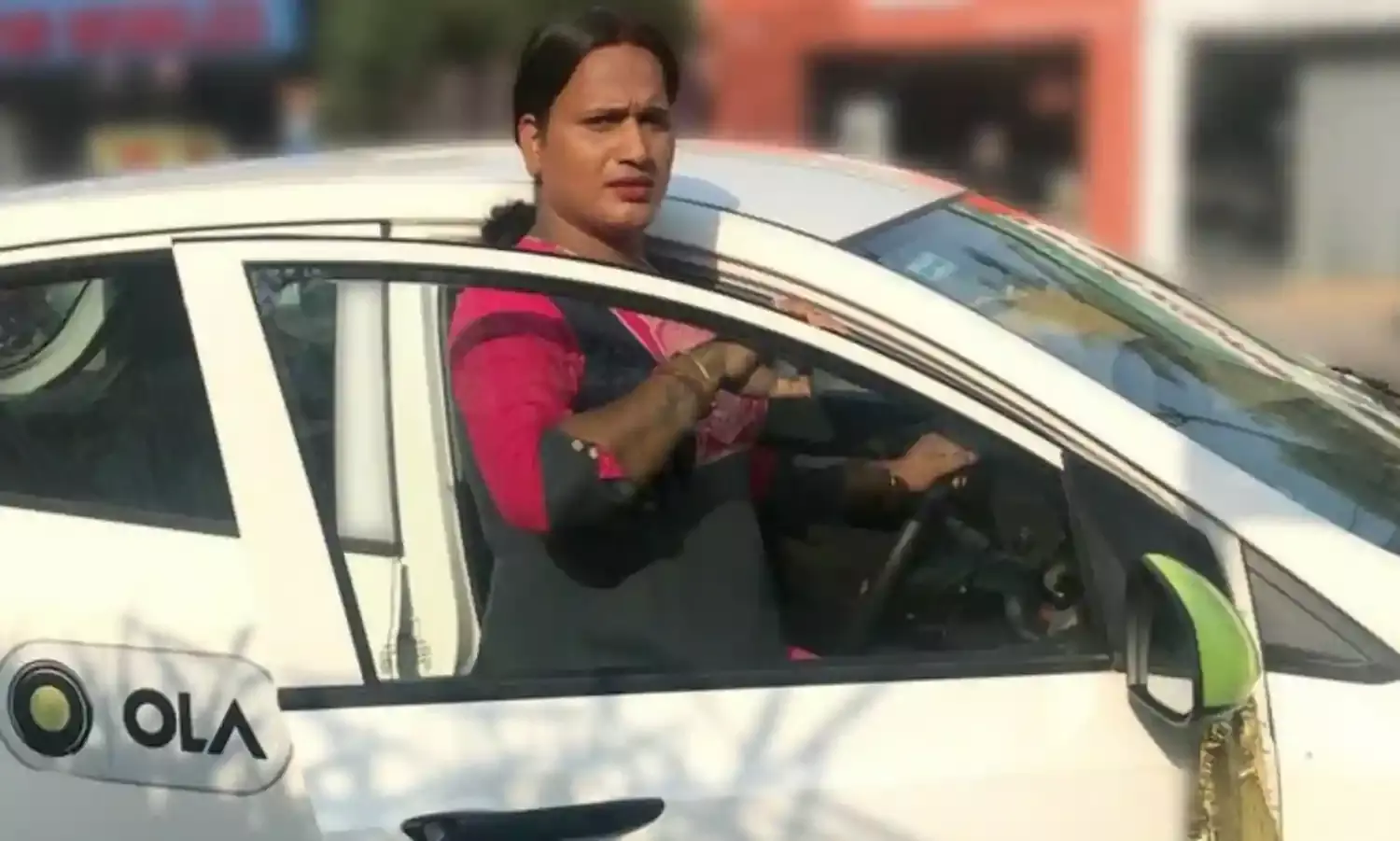Meet Ola Cab’s First Transgender Driver
Meghana Sahoo is OLA cabs first transgender driver;

Since 2014, “hijras” in India have a constitutional right to register themselves as the third gender. They have been allowed to change their genders without undergoing a sex reassignment surgery (SRS) with states like Kerala pioneering implementing cost-free SRS in government hospitals.
Though something as normal as driving has been something the third gender has been carrying on for their personal use as well as professionally since the introduction of G-Taxis in Thiruvananthapuram in 2016, it is solely operated by the transgender community. Prior to this, She-Taxis had been introduced that targeted women commuters. Similarly, G-Taxi aimed at equality where travellers irrespective of their gender could avail of the opportunity and provide the service. This was launched by Gender Park that is led by the State under the Department of Social Justice. P.T.M. Sunish said, “We are hopeful that the project will help them fetch a better income and people who avail themselves of ‘G-Taxi’ can interact with the drivers that will help change their mind-set. This was launched after a number of Trans genders in the International Gender Conference of 2015 requested Sunish to start an entrepreneurial programme inspired from “She-Taxis”
However recently, online taxi service OLA cabs hired their first transgender driver, Bhubaneswar based Meghana Sahoo. Sahoo says, “It is a part of Indian Sanskriti. Hijra community holds significant roles in some of the most important texts in Hinduism, including Mahabharata and Ramayana. Hijras held significant positions in the courts and administration during the Mughal era India and during the British rule.” She believes that the reason why The British implemented Article 377 was to break the unity of the LGBT community which was rather “strong” then.
Speaking about the Transgender Bill of 2014, she said India will take some time to be rid of the social stigma attached to the “third gender” wholly but called it a progressive move by the law of the land. She also stressed on the issues that her community still faces, “Banks are hesitant to give us loans because they are doubtful if we can recover it. I could not buy my car on my own name but had to buy it on my father’s name.” She further added, “Though we have got Aadhar card and other benefits it is difficult to get a pancard in her state, Odisha”. Sahoo said she was in favour of adoption rights so that transgender couples can have children, especially as they cannot conceive naturally.
Sahoo also spoke about the responsibility the Hijra community has, saying if they resort to doing “worthy” jobs and work towards the betterment and welfare of their community, they will earn wider respect. She shares a page from her own life where her family accepted her and was now “proud” of her for the kind of dedication she has shown in her job.
However irrespective of the progress and state laws in relation to the Hijra community, the Transgender Persons (Protection of Rights) Act of 2016 faced a lot of criticism from eminent activists for incorrectly defining trans people as if they were exclusively outside the binary. According to a report by Victory Institute, India’s only national organization elevating openly LGBTQ leaders the “draft bill is a massively diluted, criminalizing and pathologising text that stands on distorted premises that amount to human rights violations.”
The public report also expressed disapproval towards the court’s decision of including a screening committee that will serve as “gatekeepers” who have the power to decide who can or cannot be transgender, which is in conflict with the Court’s ruling that allows for self- identification regardless of medical interventions. The report further added, “While it is important to recognize that the 2016 bill is progressive in its attempt to recognize and help the transgender community, it is based on false information and has ignored the input of actual Trans people who have attempted to educate the committee on these matters.” India’s top court criminalised in 2013 after 4 years of decriminalisation which had helped the gay community to come out in the open. Shashi Tharoor, former Union Minister for External Affairs and a vehement supporter of the LGBT rights has on numerous public associations maintained, “It is not about sex at all but constitutional rights” which is why he has been a consistent advocate of queer rights. His public petition “to raise consciousness” on change.org gathered over “40,000 plus” signatures was sent to the Prime Minister in 2016.
Tharoor had previously introduced a member’s bill to decriminalize consensual sex which was brutally shot down with MP’s saying “Tharoor ko zyada zaroorat Hai is bill Ki”. To this Tharoor let out a guffaw and said, “First of all you don’t have to be an animal to advocate animal rights. He explained his support for the bill later that year saying, “In a democracy, people should be free to be who they are. We should not be judging them, harassing them and giving the police and excuse to arrest them. 578 people have been arrested since the Supreme Court judgement of 2013, and to my mind it is 578 people too many.”

